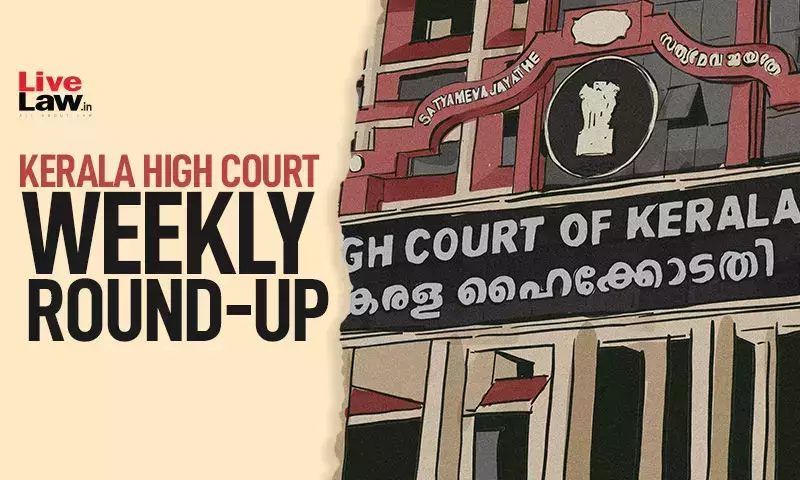Next Story
5 March 2023 3:00 PM IST
Nominal Index [Citation: 2023 LiveLaw (Ker) 102-118]Yasin Sunu V State of Kerala 2023 LiveLaw (Ker) 102Lalithambika & Ors. v. Grievance Redressal Committee & Ors. 2023 LiveLaw (Ker) 103Jamshid P.V. v. State of Kerala 2023 LiveLaw (Ker) 104Sam Joseph V State of Kerala and Others 2023 LiveLaw (Ker) 105K C Antony V State of Kerala and Others 2023 LiveLaw (Ker) 106Pradeep and Others V...

